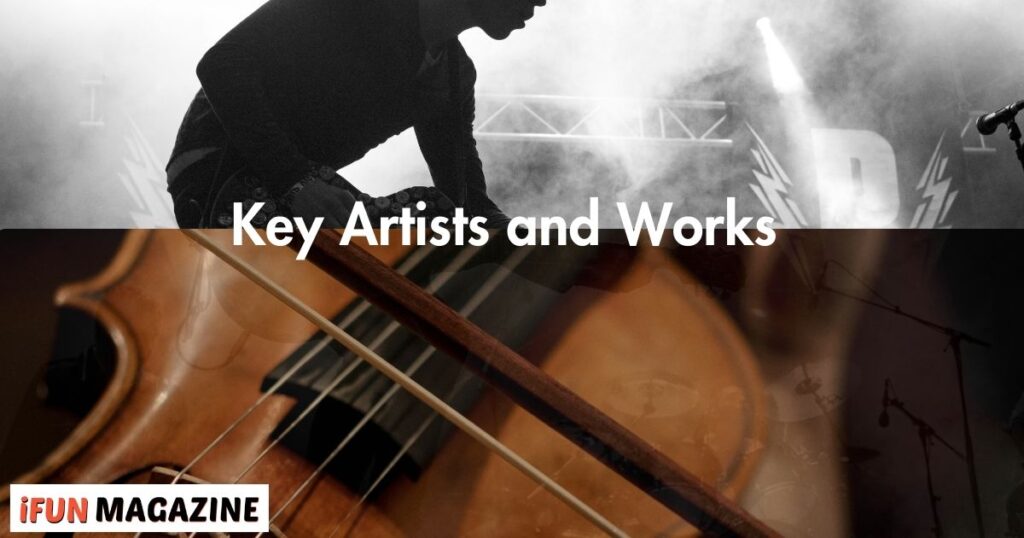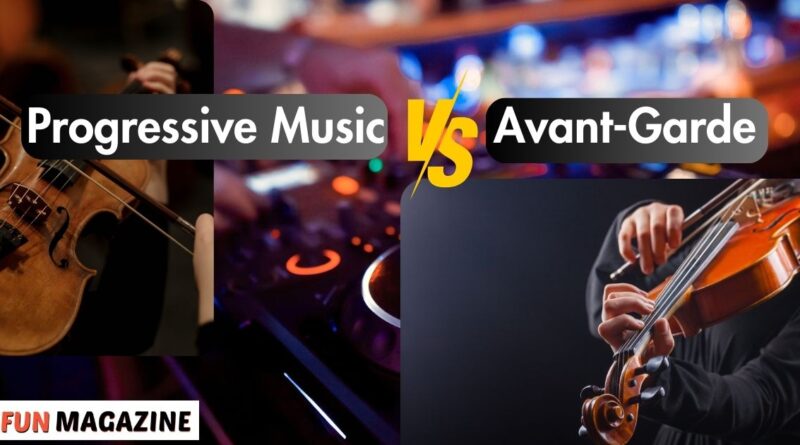There are many different kinds of music, but two interesting ones are avant-garde and progressive.
Pushing boundaries in a more structured manner, combining many styles, and discovering new sounds while being accessible to a large audience are all standard features of progressive music.
In contrast, avant-garde music defies convention and uses bold ideas to produce something unique and unusual.
Knowing the differences between these two genres enables us to appreciate the originality and creativity of the music we listen to and the variety of ways musicians convey their ideas!
Origins and Historical Context of Progressive Music & Avant-Garde Music
To be true, it’s helpful to look into the roots of progressive and avant-garde music and how they developed into their current forms to fully understand them.
When performers joined the progressive rock movement in the late 1960s and early 1970s, progressive music began to gain popularity. It developed a new and creative approach to music due to its significant influences from jazz, classical music, and experimental sound.
By combining many genres and techniques, artists aspired to push limits and produce more complex and meaningful music than popular culture. Music became a means for musicians to engage with an audience while displaying their expertise in technology and creativity.
However, avant-garde music’s origins date back to the early 1900s. It developed from more considerable avant-garde literature and artistic groups that aimed to do things no one had ever done before and to break convention.
Composers like John Cage, who experimented with novel concepts and methods, are strongly associated with this type of music. Avant-garde music breaks traditional norms and often excites or even impacts those who enjoy it with its unusualness and originality.
Both genres of music were born out of musicians’ desire to produce something genuinely distinctive, and each is fascinating in its own right due to its distinct beginnings!
Musical Characteristics of Progressive Music VS Avant-Garde Music
Music has many outstanding styles, each offering something unique. Take an in-depth look at progressive and avant-garde music. You’ll discover that they stand out because of their unique characteristics.
Progressive Music is known for its complex and creative song structures. These songs are unpredictable and thrilling because they frequently have shifting time signatures rather than the typical patterns. You’ll also notice a lot of synthesizers and precise arrangements, giving the song a rich and dynamic tone. Progressive music also shares thematic albums, which tell stories or explore particular ideas across the tracks. It’s interesting how progressive music pushes limits and remains creative while still being very approachable by popular audiences.
Avant-garde music has an entirely different vibe. This style is focused on experimentation and breaking the rules. It uses unconventional techniques and surprising sounds and often includes dissonance, which makes listeners rethink what music can be. Unlike traditional music, avant-garde is not bound by harmony or structure, it explores entirely new territories. This style often challenges people’s expectations and inspires them to see music in a wholly fresh way.
Both styles are creative in their own right, showing just how diverse and limitless music can be!
Key Artists and Works

Some genuinely innovative musicians and albums have influenced progressive and avant-garde music.
Bands like Pink Floyd, Genesis, Yes, and King Crimson are prominent in the progressive music industry. They created classic albums like Yes’s Close to the Edge and Pink Floyd’s Dark Side of the Moon. With their intricate sounds and stimulating lyrics, these songs pushed boundaries and significantly impacted music history.
However, avant-garde music presented entirely novel concepts. Composers such as Meredith Monk, Karlheinz Stockhausen, and John Cage challenged traditional music. For instance, Stockhausen’s Kontakte investigated breakthrough electronic noises. At the same time, Cage’s 4’33” caused people to reflect carefully on the idea of silence itself. These artists prove that music has no limits, it’s an open field for creativity and innovation.
Cultural Significance and Influence
Music has always had significant functions in inspiring new ideas and influencing culture. Progressive music’s daring explorations and complex style have impacted modern rock, metal, and pop music. Many fan communities have grown around it, keeping its appeal alive through nostalgia and fresh innovations.
On the other hand, avant-garde music has expanded the boundaries of what music can be. It opened the door for new forms like improvisational and electronic music, proving that creativity in music has no limits. Both styles continue to inspire and connect people across generations.
Points of Convergence and Divergence
| Aspect | Points of Convergence | Points of Divergence |
| Innovation | Both emphasize pushing creative boundaries and exploring new possibilities in music. | Avant-garde music often pursues more radical experimentation, while progressive music remains rooted in traditional genre blends. |
| Accessibility | Both styles challenge the listener’s perspective on music and creativity. | Progressive music is more mainstream-friendly, while avant-garde music caters to niche audiences due to its abstract nature. |
| Methodology | Shared commitment to redefining musical structures and approaches. | Progressive music typically fuses multiple genres, whereas avant-garde focuses on breaking conventional norms entirely. |
Final Remarks
In conclusion, progressive and avant-garde music are potent examples of how creativity can shape and expand the boundaries of sound.
Progressive music stands out for its complex structures and bold experiments. In contrast, avant-garde music pushes the limits of traditional forms, introducing groundbreaking new ideas like improvisation and electronic elements.
Both genres have left a lasting legacy, influencing countless modern styles and inspiring musicians to think outside the box. Even today, their impact can be felt as they continue to connect people and shape the music landscape for future generations.
FAQs
Is avant-garde progressive?
While avant-garde and progressive music share similarities, such as challenging traditional norms and experimenting with new ideas, they are different. Avant-garde focuses on breaking boundaries and introducing radically new concepts. In contrast, progressive music often incorporates complex structures and evolves existing music styles into more sophisticated forms.
What does it mean if music is progressive?
Progressive music is a genre or approach that goes beyond conventional boundaries by incorporating intricate compositions, diverse influences, and experimental elements. It strives to create new and innovative musical expressions, often blending techniques from multiple genres.
What is avant-garde music?
Avant-garde music challenges standard musical conventions and explores groundbreaking ideas. It often incorporates unusual sounds, experimental techniques, and unconventional structures. This genre aims to push the limits of creativity and redefine what music can be.
What is the main difference between progressive and avant-garde music?
The main difference lies in their approach to musical structure and innovation. Progressive music often blends diverse genres and incorporates complex arrangements, making it more accessible to a broader audience. Avant-garde music, on the other hand, is more experimental and focuses on challenging conventional musical norms, appealing to niche audiences.
Are progressive and avant-garde music still influential today?
Yes, both genres continue to inspire modern musicians across various styles. Their emphasis on creativity and innovation has shaped contemporary music and encouraged artists to push boundaries in their craft.
Can someone enjoy both progressive and avant-garde music?
Absolutely! Progressive and avant-garde music cater to different tastes and moods, offering unique and enriching experiences. Listeners with an open mind can appreciate the inventive aspects of each genre.



